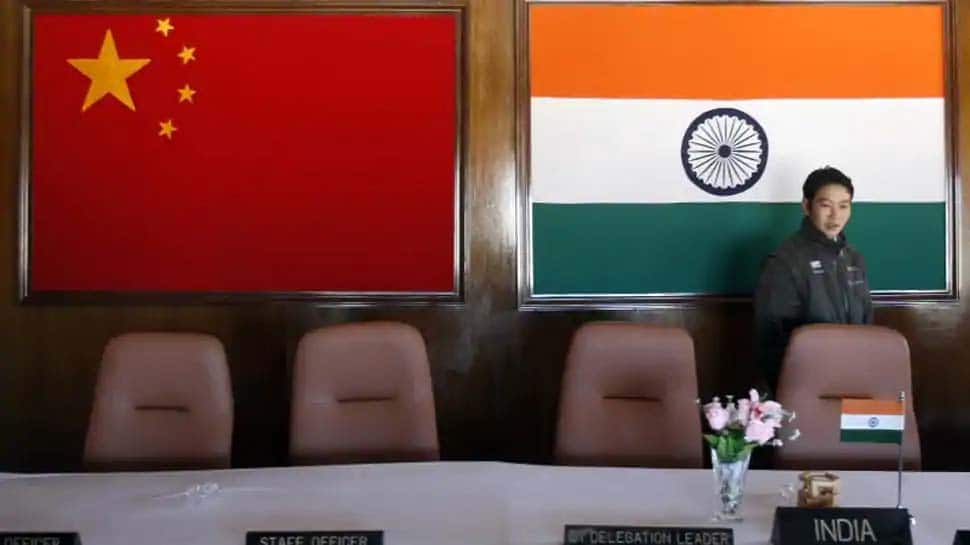The decision of India to impose a ban on 59 Chinese mobile apps citing 'security concerns' has upset and stirred up China. The development has been widely discussed on China's social media and the hashtag #indiabans59Chineseapps has been trending on Weibo platform.
India had on June 29 banned the apps with Chinese links, including hugely popular TikTok and UC Browser, saying that they were "engaged in activities which are prejudicial to sovereignty and integrity of India, defence of India, the security of the state and public order". The list of apps that have been banned also includes Helo, Likee, Cam Scanner, SHAREit, WeChat, Vigo Video, Mi Video Call - Xiaomi, Clash of Kings as well as e-commerce platforms Club Factory and Shein.
Chinese people are also upset that the decision of India will have a big impact on their economy and it will lead to unemployment there. Some people were seen commenting on social media that Indian generic drugs are very cheap and they can’t afford expensive branded drugs.
“Thousands of Chinese cancer patients’ lives depend on Indian generic drugs. They can’t afford expensive brand-name drugs. For Indian people, no Chinese product means inconvenience. But for many Chinese patients, Indian drug is a matter of life and death,” tweeted Shwan Zhang.
There is also a growing demand that India should also stop buying power from the Chinese power project of Nepal. Many Chinese companies are investing heavily in the power sector in Nepal and these companies are benefiting greatly by purchasing power from India.
In addition to this, there is a growing demand also in India to ban Chinese companies like Huawei and ZTE from Telecom. This move will safeguard the interests of crores of Indian mobile and internet users. This decision is a targeted move to ensure safety and sovereignty of Indian cyberspace announced the Ministry of Electronics and IT on June 29.
China is indulging in large scale cyber-espionage using an army of hackers, drawn from military, intelligence, cyber professionals as an intelligence activity. Analysts believe that Chinese mobile app firms and other tech firms are beholden to the CCP under Chinese law. As extensions of the Chinese state, they pose a national security risk.
The Chinese companies are all state-owned and tightly controlled by the Chinese Communist Party. Jack Ma, the head of e-commerce giant Alibaba Group Holding Ltd and China’s best-known capitalist, is also Communist Party member. The People’s Daily have revealed Ma’s party membership in a list of 100 people it said had helped drive the country “reform and opening up” process. Ma is China’s richest man.
China's mobile companies are a threat not only to India but to the entire world. Last week, the US National Security Advisor (NSA) Robert C O’Brien had raised serious questions over China's policies.
“The CCP accomplishes this goal, in part, by subsidizing hardware, software, telecommunications, and even genetics companies. As a result, corporations such as Huawei and ZTE undercut competitors on price and install their equipment around the globe at a loss. This has the side effect of putting out of business American manufacturers of telecom hardware and has made it very difficult for Nokia and Ericsson. Why do they do it? Because it is not telecom hardware or software profits the CCP are after, it is your data. They use “backdoors” built into the products to obtain that data," the NSA had said on June 24.
"India should stop buying power from Chinese power projects in Nepal. India has signed an agreement with Nepal for power banking (bartering of electricity based on differential power demand) and also for state electricity authorities to buy power from Nepal. As India is yet not power-sufficient, the move to buy power from Nepal is only helping Chinese companies to make a profit," said Security expert Sanjeev Srivastwa.
World opinion as seen in social media is appreciative of Indian move. Many netizens in the US, Canada, Europe, Australia have demanded a similar ban. “Today I spoke to @SandhuTaranjitS to express our solidarity with the people of #India as they firmly confront unwarranted & lawless armed aggression by the Communist Party of #China. India has made it clear, they will not be bullied by Beijing.” tweeted US Senator Marco Rubio.
Banning Chinese apps is one of the strongest moves of India by targeting China in the online space since a border crisis erupted between two countries. The decision came close on the heels of ongoing border tension between India and China that escalated on June 15 when 20 Indian Army personnel were martyred after violent clashes with Chinese troops along the Line of Actual Control (LAC) in Galwan Valley of eastern Ladakh.
















